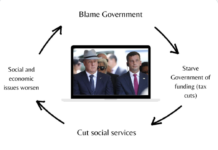An additional $128 million will be invested into the tertiary sector to increase tuition subsidies at degree-level and above by a further four percent in 2024 and 2025. This is in addition to the five percent increase provided at Budget 2023 – the most significant funding increase in 20 years.
“The Government has heard the concerns of the sector. When we began our Budget process Universities and other degree providers were forecasting enrolment increases. The opposite has occurred, and it is clear that there is a need for additional support,” Jan Tinetti said.
“This funding will help maintain the quality and breadth of higher education offerings and research capability in our tertiary institutions. This is vital for our students, our tertiary workforce, our broader research system, and for economic and social wellbeing in New Zealand. It will not resolve all the issues that universities are facing, but it should make a positive difference.
“The funding boost will go to all degree granting institutions including Wānanga and Te Pūkenga. It should be noted that while recent focus has been on Victoria and Otago Universities, other institutions have previously managed declines in student numbers. We did not want to disadvantage those institutions which in some cases had already made difficult decisions.
“Presently, our tertiary institutions are experiencing an unexpectedly large decline in domestic enrolments and increased cost pressures. In addition, although international enrolments are increasing, they remain well below pre-COVID levels. Similar issues are being faced by tertiary providers worldwide,” Jan Tinetti said.
“The funding announced today is coming from a transfer of underspends in Vote Tertiary Education, including from the fees free scheme caused by lower than expected enrolments,” Grant Robertson said.
“Tertiary institutions are autonomous and make their own decisions on how best to respond to their financial situation. This funding increase will help universities and other institutions deliver their strategic plans as agreed by their Councils. The Government expects the subsidy increase will be considered by when universities make final decisions on their offerings for 2024 and 2025.
“As part of its decisions Cabinet has asked for a report back by the end of July on whether recently announced changes represent a threat to capability or provision of programmes nationwide,” Grant Robertson said.
The Government will also review higher education funding, including the Performance Based Research Fund. Today’s funding announcement is a temporary boost for two years. We need to take a thorough look at the funding system during this time.
“The current financial situation of some tertiary institutions points to the need take this broader look into the way our higher education system is funded and financed. Decisions on the scope and approach to the review will be taken before the end of 2023.
“The Government remains committed in supporting and working with the tertiary sector, so it meets the evolving needs of students and continues to make a critical contribution to research and innovation in Aotearoa,” Jan Tinetti said.





Something surely needs to change.
This is an insider’s view, now from a distance but with the insight of history. Way back I suspect universities in NZ were the domain of the elite, although nothing like the historical institutions of England or the prestigious colleges in the USA. NZ’s egalitarian ethos levelled the playing field a little. Still, pre-war and immediately post-war proportionally few went to university, and those who did were schooled in the discourses of power, and importantly learnt to critique the discourses of power, if that was their interest. A few souls became experts in the classics or other curriculum areas now well forgotten. The 70’s saw things beginning to change, in a number of ways, not isolated changes but reflecting the growth of so-called “plate glass” universities in the UK, and shortly after, so-called new universities, former polytechnics. Much the same happened in NZ on a smaller scale. One poly transitioned to university status; a good many polys began to offer degree and post grad programmes; and Maori universities, wananga, were established –open to all. Access was greatly widened to those who previously didn’t consider university study. With neoliberalism economic models changed. By 1990 user pays was introduced, and boosted by the catch cry of “education, education, education”, attributed to Tony Blair but adopted also in NZ, the university sector grew exponentially. The hype around the ‘knowledge economy’ played a big part as did the broader credentialisation of the curriculum. Secondary schools were heavily marketed to attract students, many would say at the expense of vocational education and training (although some universities and wananga dabbled in both). Widened access and bums on seats was one thing however, outcomes were another. A good many students ended up out of pocket with no qualification, something they could ill afford, or simply struggled through with minimal learning and a next to useless qualification, hoping from programme to programme to avoid being chucked out (although the possibility of personal development cannot be discounted). A good many teaching and allied staff alike would say standards were compromised in order to meet KPIs.
The growth of export education was another a big change and it would be fair to say government funding of the sector was tied to the assumption that international students would prop up a shortfall in funding. It did for some years. These were the boom years and universities were not shy of capital expenditure. Funding models were also closely tied to research and in order to meet performance-based PBRF outcomes academic staff increasingly needed to source external funding, if available in some areas and not always a first choice. While these changes encouraged academics to engage with their areas of expertise, not only as teachers (non-teaching academics in research institutes within the university being a bit different), and arguably led to a lift in NZ universities’ share of the world’s indexed research publications and citations, a good many critics pointed to flaws in the system.
Also at the same time, work for teaching academics started to become more precarious. In NZ Labour’s repeal of the Employment Contacts Act in 1999 gave tenure to a good many on casual contracts but following the neoliberal model, very apparent overseas, pre-degree courses in particular were increasingly staffed by casual teaching staff. It appears that this casualization has now spread even to degree courses.
So what needs to change? Not an easy task ahead but decision–makers need to look back as well as look forward, laying all cards on the table, and unquestionably bring all stakeholders into the fold. While I suspect many in the general public would not miss university education as it’s now perceived, it’s too important to let fail altogether, not only for STEM areas but also as a place to develop personally, and to understand and critique discourses of power. Perhaps the $128 million will buy some time, but only for making some hard decisions.